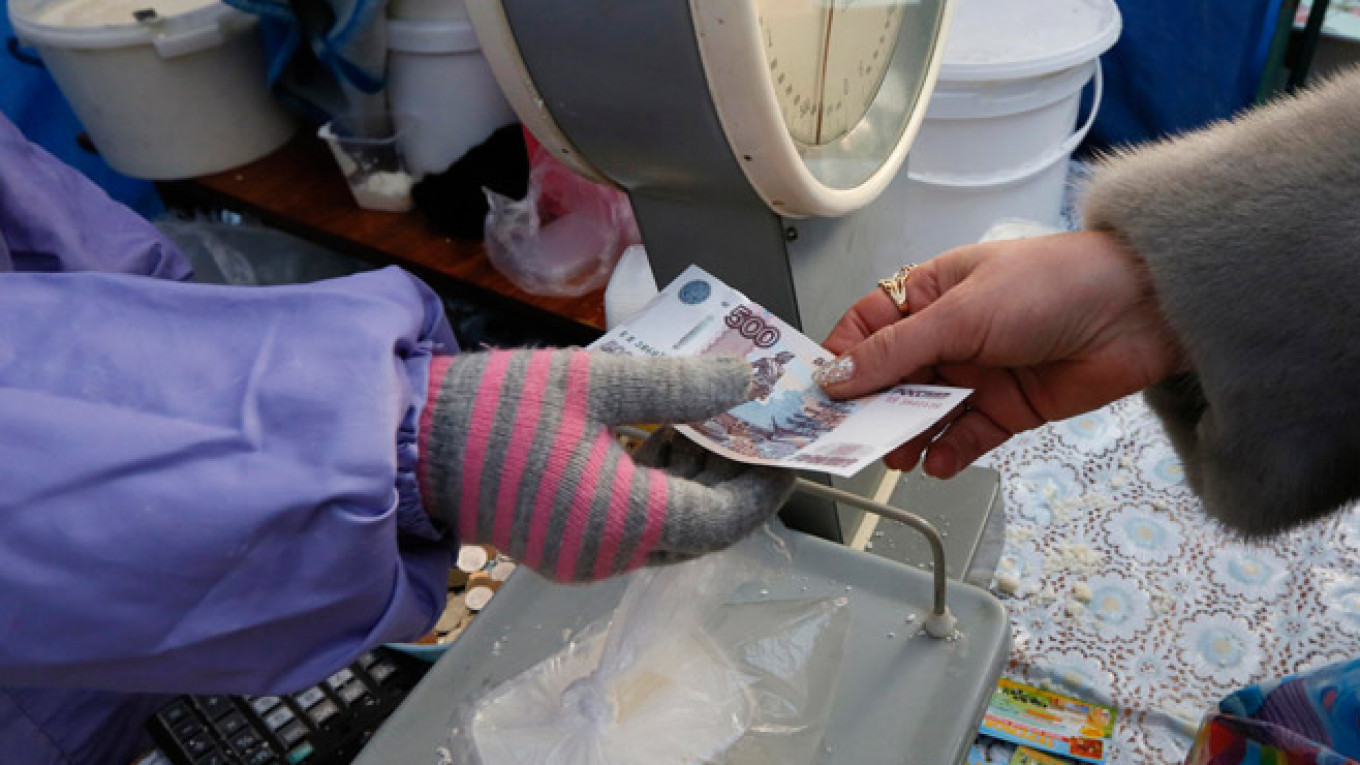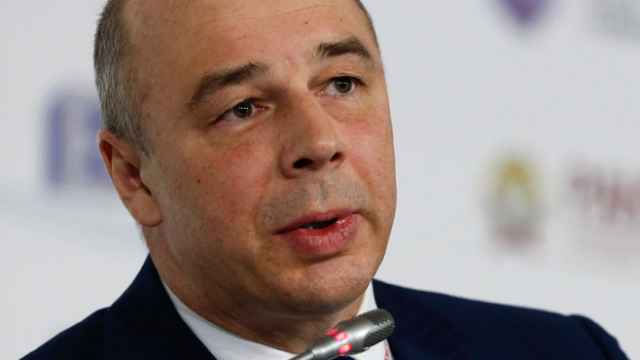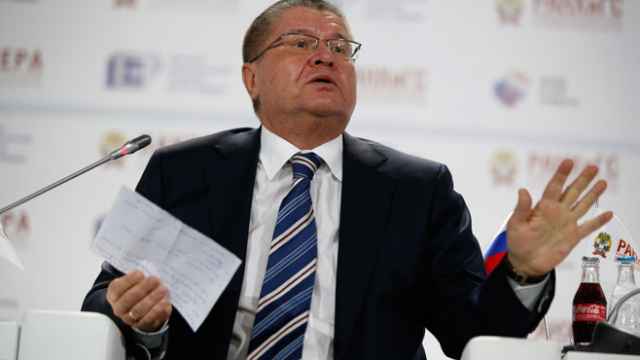With the World Bank's latest forecast predicting a 2.9 percent contraction of Russia' economy this year, the country's energy, banking and industrial manufacturing sectors will all feel the fallout, analysts said Wednesday.
As the price of oil, Russia's main export, swirls around six-year record lows of $45 per barrel and the ruble currency continues its long downward slide, the World Bank late Tuesday said its previous assessment of a 0.7 percent fall in output was overoptimistic.
The bank said Russian output would see 0.1 percent growth in 2016 and a 1.1 percent increase in 2017. Last year Russia's economy expanded by 0.7 percent, according to the bank.
As the recession gets going, Yevgeny Nadorshin, chief economist at holding company Sistema, was grim: The financial and construction sectors, which are expected to contract by 5 to 10 percent, will be the main drags on GDP growth this year, he said, adding: "But I do not expect growth of any industry vital for the economy this year, including the oil and gas sector."
Banking Crisis
German Gref, a former economic development minister and currently the CEO of Russia's largest lender, Sberbank, said on Wednesday he expected an onslaught of "a full-scale crisis in the banking industry."
"At the current [oil] price on a yearly average, how many banks will survive after they have formed a necessary level of provisions?" Gref said at the annual Gaidar Forum. If the current situation holds, he said, banks would have to create an additional 3 trillion rubles ($45 billion) in provisions, vastly increasing their liabilities.
The government has already agreed to prop up the country's major banks. Last month President Vladimir Putin signed a decree that entitled "systematically important banks" to a total of 1 trillion rubles ($15 billion) in recapitalization funds.
As companies struggling to service debt forfeit assets and equity to their creditors, and banks buy stakes in firms needing capital injections, banks will become industrial-financial groups, Gref said. With the spate of bank bailouts increasing the state's ownership of the financial sector, "We will have a big government. The whole economy will be state-owned," he said.
Oil and Gas Stagnation
Oil production almost flattened out by the end of 2014, while exports fell 4.6 percent by November, the latest month for which figures are available.
Gas production, which had been falling since March, toppled by as much as 15 percent in October. Output picked up slightly in November, but analysts do not expect this growth to continue through this year.
"Gas demand within the country is not growing. In Europe, Russia's biggest export market, demand is also decreasing, with the slump being further strengthened by unresolved political tensions [over Ukraine]," Nadorshin said.
According to the Institute of Natural Monopolies Research, a Moscow-based think tank, those sectors that widely apply advanced technology, such as production of cars and trains, machine building and production of electrical equipment, electronics and optics, will also be severely affected by the impending crisis.
The latest report by the Economic Development Ministry, released in December, showed that year-on-year production of machines and equipment decreased by 8.4 percent from January to November 2014. This was caused, the ministry said, by falling demand for equipment as factories cut investment in modernizing their facilities.
"In this time of uncertainty, rather than investing in expanding production, businessmen are inclined to transfer any revenue they get into higher salaries or channel the money abroad," Georgy Ostapkovich, director of the Center for Business Tendencies Studies at the Higher School of Economics, wrote in a recent note on the state of business climate in Russia.
He expected overall industrial production to go through "hard times" next year and likely show negative growth.
Contact the author at a.panin@imedia.ru
A Message from The Moscow Times:
Dear readers,
We are facing unprecedented challenges. Russia's Prosecutor General's Office has designated The Moscow Times as an "undesirable" organization, criminalizing our work and putting our staff at risk of prosecution. This follows our earlier unjust labeling as a "foreign agent."
These actions are direct attempts to silence independent journalism in Russia. The authorities claim our work "discredits the decisions of the Russian leadership." We see things differently: we strive to provide accurate, unbiased reporting on Russia.
We, the journalists of The Moscow Times, refuse to be silenced. But to continue our work, we need your help.
Your support, no matter how small, makes a world of difference. If you can, please support us monthly starting from just $2. It's quick to set up, and every contribution makes a significant impact.
By supporting The Moscow Times, you're defending open, independent journalism in the face of repression. Thank you for standing with us.
Remind me later.






